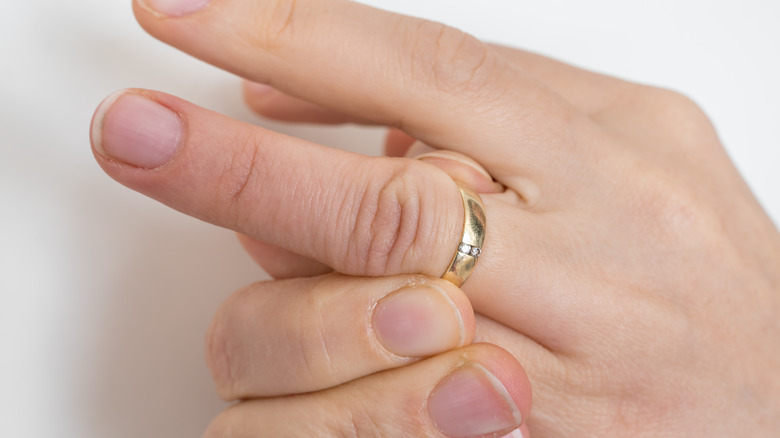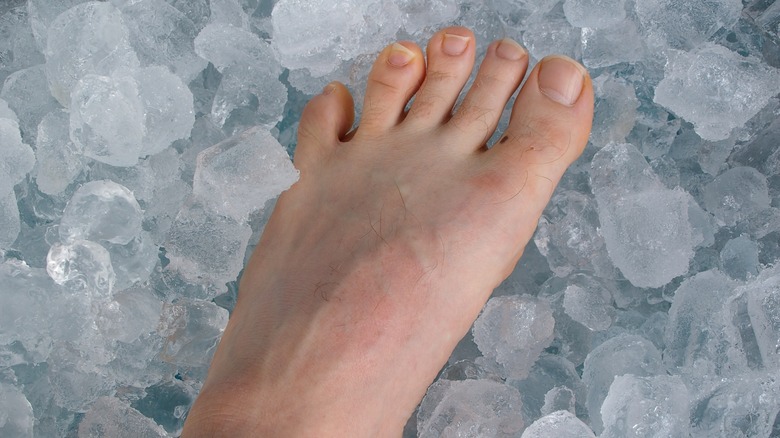The Real Reason You Might Swell In The Heat
Have you ever worn flip-flops for a few consecutive summer days, then made an awkward attempt to slip on a sneaker or squeeze into a slingback? It may feel like your shoe has shrunk, but it's actually more likely that your foot is swollen. You might also notice during the hotter months that your rings are harder to slide on and off, as the swelling in your hands and fingers comes and goes.
Associate professor in the rheumatology department at the University of Chicago, Tammy Olsen Utset, explains to Prevention that blood vessels expand when hot, which allows more heat to leave the skin in order to help cool down the body. The expansion of the vessels can sometimes leak a bit of fluid into the soft tissues, which causes swelling.
This condition, called heat edema, can occur at any time, but you may be more prone to swelling if you are sitting or standing in the heat for long periods of time (per Alberta Health Services). According to the Cleveland Clinic, too much sodium in one's diet can increase the risk for edema, as well as pregnancy and certain medical conditions. Furthermore, Bustle reports that heat edema affects more women than men.
Helpful tips to soothe swelling
There are some home treatments you can try to ease the discomfort of heat edema and to help get those rings off your swollen fingers.
Amy Shapiro, the founder of Real Nutrition, tells Byrdie that exercise, even moderate movement like yoga, is helpful for edema stating, "Movement prevents water from collecting at extremities like your ankles and feet." So even if the you are in the throws of a July heatwave, it can be beneficial to get some exercise in. Speaking of movement, the Mayo Clinic suggests opening and closing your hands multiple times to help move the fluid around and ease discomfort.
Another home remedy you can try is icing the hands and feet, or "contrast hydrotherapy," which can help reduce inflammation and improve circulation. Simply alternate placing the hands or feet in warm water and then cold water, and repeat (via DIY Remedies).
Swelling in the heat is not typically a condition for concern, unless accompanied by other symptoms such as shortness of breath, chest pain, or leg pain that doesn't subside, in which case you would want to contact your doctor (via Mayo Clinic).


